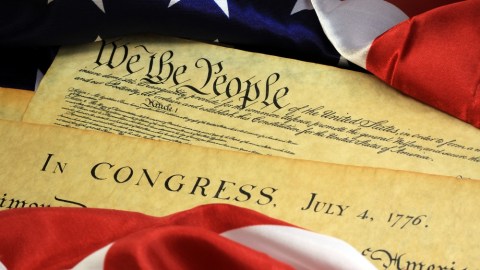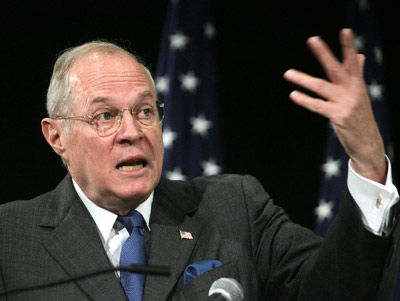Does Your Age Reflect Your View of Government Power?

The Supreme Court’s recent decision on healthcare reform put more than health policy on the public agenda – it triggered a recurring debate in the United States on the power of government. After all, how much ‘government power’ is enough is one of the questions that led to the birth of the nation two-plus centuries ago. On America’s 236th Independence Day what does the public think? Is government too big or too small, too powerful or too constrained? Does the power or lack of power of government present a problem?
Rasmussen Reports (June 24-25, 2012) surveyed 1000 Americans asking: What is a bigger problem in the world today – a government that is too powerful or a government that is not powerful enough? 58% of those surveyed agreed that an overly powerful government was a greater problem than a weaker government. That is down from 66% only one year ago. And, that shift downward has not been the result of growing ‘uncertainty’. 29% of the 2012 survey respondents believe that a weaker government is a greater problem. The percentage of people who perceive a less powerful government as a bigger problem in the world today has increased a clear 12 points from 17% in 2011.
While starting at different points and changing at different rates, both Republicans and Democrats are seeing a powerful government as less a threat. In 2011 a striking 84% of Republicans saw a powerful government as a problem as did 41% of Democrats. One short year later, 75% of Republicans said a government that is too powerful is a threat with 36% of Democrats sharing the same fear – a 9 and 5 point drop respectively. Even respondents not identifying as Republican or Democrat were more comfortable with ‘big’ government with 72% believing a more powerful government was a problem in 2011 slipping a full 11 points to 61% in 2012.
Demographics is said to be destiny, so what about age? How does age or generational cohort affect our view of big or powerful government? It appears that the majority of Americans, following in the tradition of the nation’s founders, remain apprehensive of government power – but that apprehension may be receding. Most notably younger Americans fear the power of government less. In 2011 61% of younger Americans saw a powerful government as a threat compared to 50% only one year later. Middle aged Americans, primarily older Gen X’ers and nearly all the baby boomers are trending in the same direction but with far less intensity slipping only 4% from 70% perceiving a powerful government as a threat in 2011 to 66% viewing ‘big’ government as a problem in 2012. Only the 65+ are showing a slow but steady creep upward perceiving a powerful government as a problem from 49% in 2008, to 53% in 2011, moving to 56% in 2012. Ironic, given that today’s older Americans were instrumental in the rise of government power in foreign affairs, social policy, and the economy.
A few years of data provides only a few data points but there may be an emerging trend. In contrast to many young baby boomers in the 1960s and 1970s that seemingly challenged anyone in power– today’s younger generation appears to have more faith in (or fear of the absence of) government power. Does this reflect a momentary or sustained change in American political culture? Or, as the present generation of youth ages, will their perceptions of government change to see expansive government power as a problem? If the coming generations of voters do not fear big government is America prepared for an ever-expanding role of public policy in private life? What will a more powerful government mean for other institutions affecting everything from local governance to business to non-profits? Moreover, what will Independence Day mean years from now?
Image from Shutterstock





